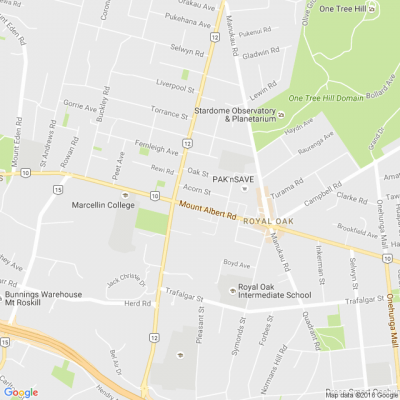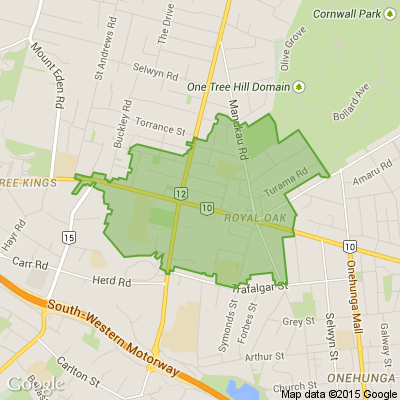Indian workers claim they were made to work 17-hour days with no pay, treated like slaves by restaurant chain
A group of 19 Indian migrant workers claim they are being made to work in what they describe as slave-like conditions up to 17 hours per day with no pay at Auckland restaurant chain Daaku Kebab.
The men claim they each paid between $26,000 and $60,000 for the work visas they feel have now trapped them.
They said they went to Sikh temples for help, and the temple communities were now supplying them with groceries. Daljit Singh, a spokesman for the Supreme Sikh Society said the workers were “not in a good shape mentally”.
The Ministry of Business, Innovation and Employment (Mbie) confirmed it had received complaints about alleged migrant exploitation at Daaku Kebab and the matter had been referred to its investigations team.
Daaku Kebab has five outlets across Auckland. One of its two directors, known by the single name Sourav, has denied the allegations as “baseless”.
Khawaish Singh, 24, said he paid $26,000 for his visa and a job at Daaku Kebab, and claims that for the first two months he received no payments despite being made to work 17-hour days.
He and three other workers - Partab Singh, 26, Narender Singh, 33, and Harsh Singh, 27 - share a basement in Papatoetoe and say they survive on food and groceries they get from the Sikh temple.
Khawaish said he worked from 11am to 4am for two months under “training” and received no payment for his work. He was just given meals.
“We are treated just like slaves and I didn’t feel like I was being treated like a human being at all,” said Khawaish, who first started work for the chain in July last year.
Khawaish said he started getting paid in September but did not know how much he received hourly because the company did not give him payslips.
Co-workers Partab, Narender and Harsh shared similar claims with the Herald, alleging they were being made to work long hours with little or no pay after paying tens of thousands of dollars for their visas.
Harsh claims he paid $60,000 for his visa because the company had promised he could be a shareholder.
“When I asked about getting a proper salary so I can repay the money I borrowed, they threatened by saying the business will be sold and all the money that I paid will be gone,” he claimed.
He feared that not repaying a loan for the money he borrowed to pay for his visa would put his family in danger.
Sourav denies all the allegations. “These allegations are all denied, but under legal advice I am unable to comment further whilst an investigation is under way.”
He said the problems arose from a “personal matter concerning families back home in India”.
“They are unable to substantiate the amounts alleged and this is a baseless allegation,” he said.
“Some of these employees have refused to work, quarrelled with customers, and have committed acts of theft on business premises.”
Sourav said he had faced pressure from the families of the men back in India to continue employing them.
He also said he had reached out to the workers “to finalise their outstanding dues and minimum employment entitlements which they are entitled to”.
“They have not yet responded to my request,” he said.
In an email dated June 17 and sighted by the Herald, Sourav said he would like to meet with the workers to resolve their employment dispute.
He said their payslips will be provided to them then.
In a previous email on June 12, Sourav said he was selling the business and gave the men two weeks to find another job or seek other options.
“Business is much slower than I expected, to be honest I put all my personal savings into my business and even still can’t afford my food expenses and my home loan . . . so I decided to sell my business,” he wrote.
Daljit Singh, a spokesman for the Supreme Sikh Society, said 19 workers linked to Daaku Kebab had sought help from Sikh temples in Papatoetoe and Takanini.
He claimed they had “been scammed”, and said it was his belief that they were paying for a pathway to residency and getting part of the business.
He said the temple had been supporting the group with groceries and supplies, and they came to the temples at least once a day for hot meals.
James Friend, Mbie acting national manager investigations, said the complaints were being referred to the ministry’s investigations team.
“We have received complaints which have been referred to our investigations team,” Friend said.
“To protect the integrity of our investigation, we will not be commenting on details of an ongoing investigation.”
The four men who spoke to the Herald had been assessed to be eligible to apply for the Migrant Exploitation Protection Visa.
This is the latest among a string of alleged exploitation cases linked to Immigration New Zealand’s accredited employer work visa (AEWV) scheme, which followed an employer-led process to hire migrant workers.
As at June 3, Immigration had approved 120,472 AEWV applications, and 35,264 accredited employers that use the scheme to attain work visas for as many staff as they wanted.
There are currently 255 active investigations on 246 accredited employers under way and 366 have had their accreditation either revoked or suspended.
It remains unclear how many people have been exploited as a result of companies exploiting the scheme and migrants wanting to move to New Zealand.
==================================================
www.nzherald.co.nz...
=================================================
⚠️ DOGS DIE IN HOT CARS. If you love them, don't leave them. ⚠️
It's a message we share time and time again, and this year, we're calling on you to help us spread that message further.
Did you know that calls to SPCA about dogs left inside hot cars made up a whopping 11% of all welfare calls last summer? This is a completely preventable issue, and one which is causing hundreds of dogs (often loved pets) to suffer.
Here are some quick facts to share with the dog owners in your life:
👉 The temperature inside a car can heat to over 50°C in less than 15 minutes.
👉 Parking in the shade and cracking windows does little to help on a warm day. Dogs rely on panting to keep cool, which they can't do in a hot car.
👉 This puts dogs at a high risk of heatstroke - a serious condition for dogs, with a mortality rate between 39%-50%.
👉 It is an offence under the Animal Welfare Act to leave a dog in a hot vehicle if they are showing signs of heat stress. You can be fined, and prosecuted.
SPCA has created downloadable resources to help you spread the message even further. Posters, a flyer, and a social media tile can be downloaded from our website here: www.spca.nz...
We encourage you to use these - and ask your local businesses to display the posters if they can. Flyers can be kept in your car and handed out as needed.
This is a community problem, and one we cannot solve alone. Help us to prevent more tragedies this summer by sharing this post.
On behalf of the animals - thank you ❤️

Best way to use leftovers?
I'm sure you've got some excess ham at home or cold roast potatoes.
What are some of your favourite ways to use leftover food from Christmas day? Share below.









 Loading…
Loading…




